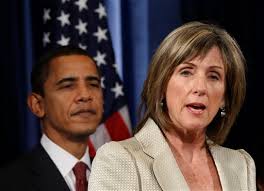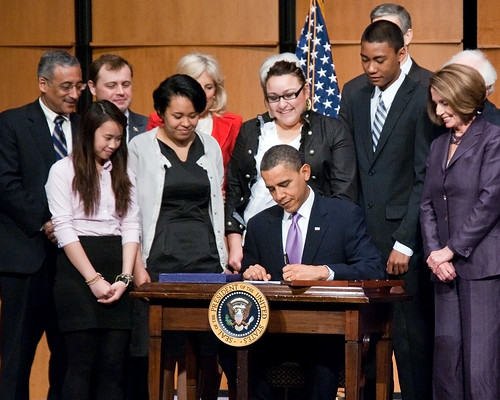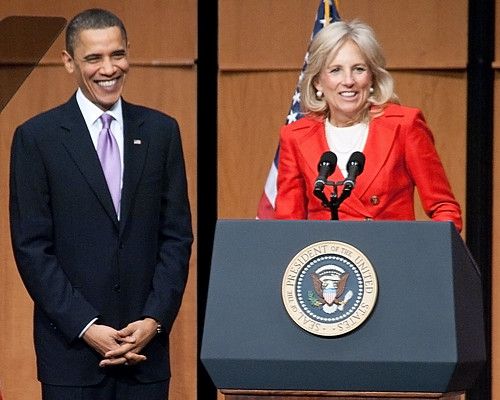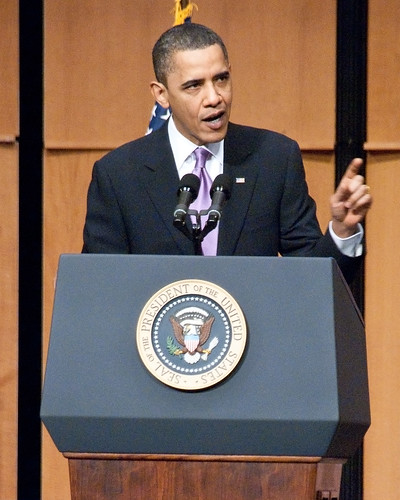It takes many forms:
The Blue Wall of Silence
We must protect the church
We clean up our own messes
You will weaken the Presidency/administration in a time of war/crisis/national emergency
An outsider cannot understand
You will take away the motivation to take risks
… and you can offer your own version . . .
It is the excuse not to public identify wrongdoers or to be subject to outside oversight or to allow criminal investigation and prosecution
The claim is that to do so will weaken the Police Force / Church / Military / Business / Organization
The claim is wrong. And failure to fully investigate and expose weakens the institution, because it inevitably leads to an arrogance and the same or similar behavior continues, or happens again. . . and again . . . and again. . .
I write in the context of the recent explosion of stories of the Roman Catholic Church’s repeated cover-ups of abuse by priest and the covering up by bishops, archbishops and cardinals, one of the last of whom now serves as Pope.
I was thinking about this when I happened to glance at a rerun of Law and Order SVU perhaps inspired by the brutalization of Abner Louima in a New York City Precinct. In the episode, the Police Department brass wanted to shut down the investigation with one officer who was going to plead to a lesser included charge and not investigate further – in the episode one other policeman, the partner, was responsible for 6 homicides for hire. I remember too many other cases in big city Police departments, in New York and elsewhere, where any attempt to investigate was confronted by the Blue Wall of silence, and what happened to officers like Frank Serpico, who attempted to breach that wall.
I lived through the Vietnam period. I cannot forget My Lai. We cannot claim we did not know. Contemporaneously, helicopter pilot Hugh Thompson reported the massacre, himself and his crew having intervened to save lives, originally receiving medals up to the Distinguished Flying Cross, decorations 30 years later lessened to the Soldier’s Medal. An “investigation” by the Brigade Lt. Colonel under orders from the Division Executive Officer reported relatively few casualties blamed on inadvertent killing, and the Army continued to view the incident as a great military achievement. Only a few soldiers were interviewed. Six months later a letter by a participant to the Commander in Vietnam, Creighton Abrams, provided extensive detail and was supported by other letters of complaint, which led to the most infamous investigation, that led by then 31 year old Colin Powell which essentially whitewashed the events and described the relations between the US Army and Vietnamese civilians as excellent.
It was only a full year after the incident that a soldier who had not participated in the events, joining the company later, wrote multiple letters – to President Nixon, to the Pentagon, to the Join Chiefs, to multiple members of Congress. Almost all ignored his letter. Congressman Morris Udall of Arizona did not.
It was not until Seymour Hersch broke the story, after having talked with Calley, that the press finally bore in. In a follow-up investigation by a General blame was affixed more broadly, but still mainly on four already dead officers.
Eventually there were multiple courts martial. The only one ever convicted was Lt. William Calley, and the sentence he actually served was 4 and half months in a stockade – for the deaths of something over 347 (conceivably up to 504). Captain Ernest Medina, Calley’s immediate superior, was acquitted, then later admitted he had lied. That admission let to no punishment.
Yes, we investigated Richard Nixon. Many of his associates went to prison. But once he resigned the furor lessened, and even though there were outcries when he was pardoned by Ford, it seemed as if the political class – in Congress and in the DC Press – was relieved that the story was over. Then with Iran-Contra under Reagan, one could almost hear palpable sighs of relief when Admiral John Poindexter said he never informed the President, refusing to take the role of John Dean, and the investigation came to a grinding halt. The pardons by George H. W. Bush seemed to erase for many even the opprobrium or shame that should have remained affixed to those like Cap Weinberger and Eliot Abrams for the rest of their lives, and yet instead we still have Oliver North on the scene, Poindexter kept reappearing like a bad penny, and Abrams wound up in the G. W. Bush administration.
Bill Clinton’s arrogance put this nation through an unnecessary crisis, and burned political capital that might have been better used on behalf of the nation. However much one may admire his achievements in his final two years of office, I cannot help but wonder if he had not had the arrogance of office to continue his reckless personal behavior how different this country might be today.
I will leave to you, dear readers, to consider the arrogance and lack of accountability of the most recently past administration.
What we saw in the Army, in several, among police forces, is unfortunately all too common in our society, in much of the world.
Perhaps I am sensitive on this because as a teacher and a member of a teachers’ union, I constantly hear refrains of accountability, including for things over which I may have little control – and that often includes how students perform on the external tests that are destroying public education. I find people willing to deny due process by claiming that our unions protect bad teachers.
Then I open a newspaper or read online about abuse of deaf children in schools run by the Church. I read about those in the Roman Catholic Church who have tried to raise the issue who have suffered attacks on their reputations for trying to get the Church to live up to what should be its standards, a standard that one can find in the Gospel of John, 15:13: Greater love has no one than this, that he lay down his life for his friends. Instead we see those in authority not even lose their careers. Bernard Cardinal Law clearly broke US statutes in how he covered up abuse in Boston, yet he was rewarded with an important sinecure in Rome, outside the jurisdiction of US Authorities.
Investigations of abuse of legal position and authority by people in the Bush administration are cut short by a career functionary in the Justice department, thereby cutting short even a cursory investigation by a professional association as to whether the standards of the legal profession were violated. No criminal charges were brought in the politicization of the Justice Department. No criminal charges, no war crimes charges, not even a serious Congressional investigation, for the serious crime of lying this nation into a war of choice.
Lack of outside oversight allows cover-ups to continue. And people become arrogant. There are no consequences for improper, immoral, illegal actions, even actions to the points of crimes against humanity.
And the rationalization can always easily be reduced to a simple justification – we cannot proceed further, fix the blame, call for appropriate accountability, because it would harm something important. We do not proceed to the appropriate investigation and punishment, we do not demand the necessary accountabilityfor the sake of the institution: the Police Department, the Church, the Corporation, the Presidency, the Administration, the political party, the union, the nation. . .
I try to teach my students to accept when they have made errors, whether deliberately or by lack of knowledge or by failing to take appropriate steps. At the time of Clinton’s impeachment we heard those from the other political party claim that the president had to be held to account for the poor example he set for young people. I would agree, although I am not sure his actions rose to the level of impeachment. I would have been satisfied had the President gone on television and apologized to all he had hurt, starting with his wife and daughter, then his staff, then those who had voted for him, and then to the children of the nation for whom he had set a horrible example. I only wish Republicans would apply the same standard to Larry Craig, Mark Sanford, John Ensign, Henry Hyde (of his “youthful indiscretion” affair) as they do to Democrats.
Except it is not that I want a tit for tat. That has poisoned the atmosphere to the point of a stalemate, a lack of willingness by Congressional ethics committees to fully investigate most wrong-doing by the members of the respective bodies: it is the equivalent of the Cold War nuclear stalemate with the USSR of Mutually Assured Destruction.
And the abuses continue. And there is no meaningful accountability. Not for those in power, not for those fortunate enough to be protected by a mindset that their wrongdoings are less important than protecting something larger for the sake of the institution. . .
I am not a vindictive person. I have multiple times written of my admiration for what Nelson Mandela and Desmond Tutu achieved in moving South Africa beyond what could have become a bloodbath by using the Truth and Reconciliation Commission. I no longer believe in the death penalty, in part because of the years I spent as a serious Christian, and accepting that no person can put herself beyond the mercy of God – that would make her equal or superior to God, and for Christianity that would be a blasphemy. But mercy requires acknowledging one’s wrongs. That is only the first step. It should also require one to try to make amends. And some level of punishment may well be required – loss of position might be only the first step. Elevation to a position of higher prestige and power is therefore an abomination. It leads to the likes of Gen. Miller being given the task of “Gitmoizing” Abu Ghraib.
I care for institutions. I care deeply for this nation, for what it can and should be. Which is why I hold it to the highest possible standards of behavior, and demand that those in positions of authority and responsibility, however small, be held to the highest level of behavior. No one should ever investigate themselves. No matter how serious we are about examining our consciences, we have a tendency to find justification for what we have done, for what we might want to do. That almost inevitably leads to abuse, to harm to others. And insofar as we justify shutting down outside investigations, in protecting our wrongdoers for the sake of the institution we weaken that institution, we allow it to be corrupted from within, to lose sight of its true purpose.
Unless that purpose is simply aggrandizement through the accumulation of wealth and power and therefore immunity from any accountability. Those who are not accountable are unrestrained in their actions and are a threat, at least potentially, to the rest of us. To me that is unacceptable, intolerable.
For the sake of the institution of public safety our police must be held to the highest standard – we empower them to use force on our behalf, and they must not abuse that power
or the sake of the institution of the Church its leaders must remember that they cannot preach what they do not practice, that they just model what Jesus taught as seen in those words from the Gospel of John that I have already quoted, that they cannot claim they are caring for souls when they are besmirching their own
For the sake of the institution of the military whose role is supposed to be to defend us from harm we cannot allow unnecessary harm to others, within the ranks of the military or by imposition of superior force upon those of other nations – the idea of dismissing death and destruction simply as ‘collateral damage” is take the first step towards abandoning humanity and morality
For the sake of the institution of a government that is supposed to be of the people, by the people for the people must be answerable TO THE PEOPLE which cannot happen if its actions remain hidden from the people, not accountable to the people
And perhaps most difficult, it must start at a smaller level – at the family. We cannot argue for the sake of family to cover up the wrongdoings of those nearest and dearest to us. If we are going to demand accountability from our institutions and those who lead them, then we must begin by demanding it of ourselves.
. . . for the sake of the institution… to do less than required full accountability is to admit by our acquiescence and silence that we accept the abuses and the wrongdoing and the cover-ups – we diminish the value of that institution, be it police, or army, or company, or religious body, or union, or even family.
. . . for the sake of the institution. . .
Peace.
 We all have had chuckles – plus a large dose of disgust – watching all the Republicans who railed against the American Recovery and Reinvestment Act and voted en masse against it, proceed to tout the benefits in their own districts. Now, Bob McDonnell’s hand-picked “jobs czar,” Lt. Gov. Bill Bolling, is joining their ranks.
We all have had chuckles – plus a large dose of disgust – watching all the Republicans who railed against the American Recovery and Reinvestment Act and voted en masse against it, proceed to tout the benefits in their own districts. Now, Bob McDonnell’s hand-picked “jobs czar,” Lt. Gov. Bill Bolling, is joining their ranks.


 I just got off a conference call with Secretary of the Interior Ken Salazar and Carol Browner, Assistant to the President for Energy and Climate Change, the subject of which was “our nation’s energy security and the Administration’s efforts to reduce our dependence on foreign oil, create jobs, and lead the way towards a clean energy economy.” Here are a few highlights, with particular focus on Virginia. {Also,
I just got off a conference call with Secretary of the Interior Ken Salazar and Carol Browner, Assistant to the President for Energy and Climate Change, the subject of which was “our nation’s energy security and the Administration’s efforts to reduce our dependence on foreign oil, create jobs, and lead the way towards a clean energy economy.” Here are a few highlights, with particular focus on Virginia. {Also,  Could Ken Cuccinelli and his right-wingnut allies’ crusade against health care reform provide a boost to Democrats this fall? It’s
Could Ken Cuccinelli and his right-wingnut allies’ crusade against health care reform provide a boost to Democrats this fall? It’s  Over the past months I have been traveling around the 10th Congressional District talking to local groups, and meeting with individuals from Fairfax to Winchester. People all across the district are concerned about their jobs, the falling value of their homes, and about what the future holds for their children.
Over the past months I have been traveling around the 10th Congressional District talking to local groups, and meeting with individuals from Fairfax to Winchester. People all across the district are concerned about their jobs, the falling value of their homes, and about what the future holds for their children. Is Barack Obama about to open up Virginia’s coast to offshore oil drilling? According to
Is Barack Obama about to open up Virginia’s coast to offshore oil drilling? According to 





![Video: Rep. Abigail Spanberger (D-VA07) Rips Tulsi Gabbard Pick as “Extraordinarily Dangerous,” “Irresponsible”; Wonders “whether there might be any sort of effort [by foreign adversaries] at engaging or influencing her”](https://bluevirginia.us/wp-content/uploads/2024/11/spanbergergabbard-100x75.jpg)

